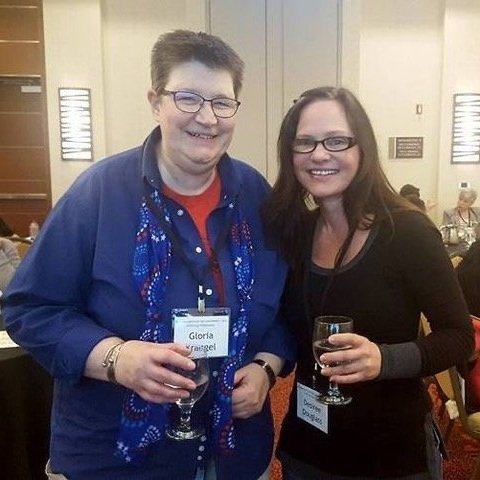HeadStrong Training
At HeadStrong, we believe that an optimistic outlook is critical to supporting someone after a brain injury. HeadStrong Training is designed for rehabilitation specialists, educators, caregivers, families, and individuals living with a brain injury. Our four modules focus on the basics of injury and includes activities focused on rebuilding identity, conflict resolution, meaningful projects and activities, and neuroplasticity.
HeadStrong Training will soon be available fully online and participants can work at their own pace, individually, or with a group. The training includes videos, activities, printable handouts, and mapping exercises to use in your work and home setting. We provide live sessions on each module to allow participants to ask questions and interact with trainers and other participants.
-

Module One: Brain Injury and Neuroplasticity
This module starts with a basic understanding of our brains and what happens to the cells and connections when our brain is injured. We introduce neuroplasticity, a physical mechanism by which the brain has the ability to reshape itself after injury. We also introduce the important role of loved ones, caregivers, and community in supporting neuroplasticity.
Topics include:
Brains, neurons, and axons
Impact of injury on neural connections
Importance of neuroplasticity following a brain injury
-

Module Two: Rebuilding Identity
Identity is key to our role in our communities. It is nearly always impacted after brain injury. When our desired identity is supported, it helps us find a positive role in our community. We create “Identity Maps” to recognize and rebuild an authentic desired identity.
Topics include:
Injury impact on identity
Identity and role in community
Create an “Identity Map”
-

Module Three: Conflict Resolution
Gain skills to reduce conflict and earn trust during challenging times. We practice self-calming and learn communication skills to de-escalate crises.
We create “Maps to Okay” to help navigate difficult emotions. The tools we learn here help us develop peaceful and respectful relationships.
Topics include:
Introduction to conflict resolution
Self-monitoring and calming
Create a “Map to Okay”
-

Module Four: Meaningful Projects
When we are engaged in meaningful projects and activities, our identity and sense of purpose is strengthened. In this training we learn how to recognize projects and activities that are meaningful to you or the person you are working with. We learn how to scale ambitious projects to make them achievable. We use planning tools to create successful projects.
Topics include:
Identify meaningful project or activity
Goal, obstacle, plan, do, review
Create a project map







